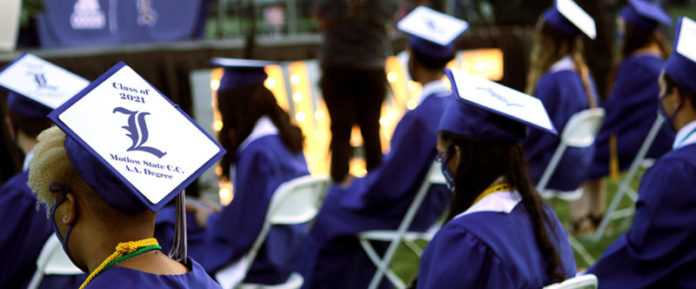
While COVID-19 certainly made the 2020-2021 school year rough on everyone, Director of Rutherford County Schools (RCS) Bill Spurlock is grateful for how well everyone worked together to make the school year happen. But now he is ready to leave the past behind and focus on what programs to move forward to help prepare students to be prepared to the future workforce. Especially with the current worker shortage.
“We need to look at what worked well last year, and what didn’t,” said Spurlock. “When adversity hits, you learn a lot. We accomplished a lot, but not as much as we would have liked to do.”
Last year Rutherford County Schools created their first Virtual School. It was something that the school system had been working on, but the pandemic sped up the process. Opened in August of 2020 to high school students, for the 2021-2022 school year Rutherford County Virtual School (RCVS) will be open to grades three through 12. For high school, RCVS is partnering with Connections Education, which has provided successful online instruction to schools all over the world. Elementary and middle school grades will be served by Rutherford County school teachers using the Schoology platform.
“Not every child learns well virtually,” said Spurlock, “while others excel. We want to give that choice, although overall children do better in the classroom. And that is where most will be in the Fall of this year.”
Another accomplishment last year was the creation of a partnership with Motlow State Community College and LaVergne High School allowing 35 students to graduate with both a high school diploma and an Associate’s degree. The system is working to offer this at other high schools in the future.
Currently some of the other high schools offer dual enrollment. The dual enrollment partnership between Middle Tennessee State University (MTSU) and Rockvale High School, for example, allows students to enroll in MTSU courses taught on-site at their school or on the MTSU campus while they are still enrolled in their secondary school, and earn credit from both institutions.
Spurlock feels that the school system needs to do a better job of preparing kids graduating from high school for the work world of tomorrow. For that reason, RCS is putting a lot more emphasis on careers. Because graduation is, he says, the beginning not the end. That is why they give eighth-graders an aptitude and interest test to help them think about possible careers they may study and train for in high school, and perhaps go on to technical school or college to gain more education.
Because of so much emphasis on careers, RCS has put a lot of effort to bring in those who have worked in professions like technology, aerospace, building, manufacturing, engineering and more into the classroom as Career and Technology teachers. The school system is working with those wanting to move from the business world into the classroom by finding ways to expedite the training and experience they need to teach.
RCS has been working for a number of years with industry partners to provide students with career information, mentors, and internships, as well as soft skills, people skills, and behavioral skills. This is a big component of Career and Technical Educations.
“This has been huge in the decades,” said Spurlock. “There has been a big gap. We know kids need to learn to be on time and work in groups.”
Reaching out to non-profits as partners to introduce students to other life experiences has also been beneficial to all involved.
“We also let our kids know what leadership means,” added Spurlock. “That it means doing what is right, not about gaining power.”
While building these career-focused programs, Spurlock has also had to deal with massive growth. Every time the system builds a new school it fills up immediately. Schools also draw more development.
“Trying to out build growth is like playing whack-a-mole,” said Spurlock. He, his staff, and the school board are looking at ways to alleviate overcrowding. The virtual school will over time take some weight off enrollment, as will some rezoning, but it is a constant effort.
“The good news is that we are still growing,” said Spurlock. “And the bad news is that we are still growing. People like Rutherford County.”
















